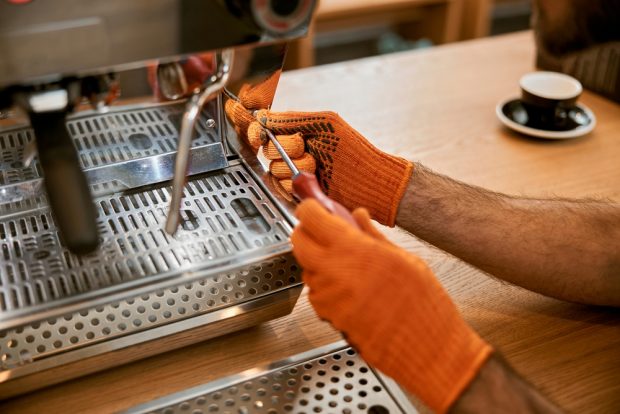Running a successful restaurant involves more than just serving delicious food and providing excellent service. It also requires maintaining your equipment to ensure it operates efficiently and safely. Regular maintenance not only extends the lifespan of your appliances but also reduces the risk of unexpected breakdowns that could disrupt your business. Here are some best practices for maintaining your restaurant equipment:
Importance of Regular Maintenance
Ensuring Operational Efficiency
Regular maintenance of restaurant equipment ensures that each piece operates at peak efficiency. When equipment is well-maintained, it consumes less energy and performs its functions more effectively. This efficiency not only saves you money on utility bills but also enhances the overall productivity of your kitchen staff.
Preventing Costly Breakdowns
One of the primary reasons for conducting regular maintenance is to prevent costly breakdowns. Unexpected equipment failures can lead to downtime, loss of revenue, and potentially dissatisfied customers. By performing routine inspections and servicing, you can identify potential issues early and address them proactively.
Ensuring Food Safety and Quality
Maintaining your equipment is crucial for upholding food safety standards. Properly functioning refrigerators, freezers, and cooking appliances help keep food at the correct temperatures and prevent contamination. This ensures that the food you serve is safe for consumption and maintains its quality.
Essential Maintenance Tasks
Cleaning and Sanitizing
Regular cleaning and sanitizing are fundamental to equipment maintenance. Grease, food particles, and debris can build up over time and affect the performance of appliances. Develop a cleaning schedule that includes daily, weekly, and monthly tasks for each piece of equipment, such as degreasing grills, descaling coffee machines, and sanitizing ice machines.
Checking and Replacing Filters
Air and water filters play a critical role in maintaining the efficiency of equipment like ventilation systems and dishwashers. Inspect filters regularly and replace them according to the manufacturer’s recommendations. Clogged filters can impair airflow and water flow, leading to decreased performance and potential equipment damage.
Lubricating Moving Parts
Many restaurant appliances have moving parts that require lubrication to operate smoothly. Hinges, bearings, and motors should be inspected periodically and lubricated as needed. This prevents excessive wear and tear, reduces friction-related heat buildup, and extends the lifespan of mechanical components.
Inspecting for Wear and Tear
Perform routine inspections to check for signs of wear and tear on equipment components. Look for loose belts, cracked seals, worn-out gaskets, and frayed wires. Addressing these issues promptly can prevent more significant problems from developing and ensure the safety of your staff and customers.
Implementing a Maintenance Schedule
Creating a Maintenance Calendar
Develop a comprehensive maintenance schedule that outlines specific tasks, frequencies, and responsible parties. Assign staff members to perform daily, weekly, and monthly checks based on the complexity and usage frequency of each piece of equipment. Use a digital calendar or scheduling software to track maintenance activities and set reminders.
Training Staff on Maintenance Procedures
Ensure that your kitchen staff is trained in basic equipment maintenance procedures. Provide clear instructions on cleaning techniques, filter replacements, and visual inspections. Empowering your team to participate in equipment maintenance fosters a culture of responsibility and ensures that tasks are performed correctly and consistently.
Documenting Maintenance Records
Keep detailed records of all maintenance activities, including inspections, repairs, and replacements. Documenting these records not only helps track the history of each piece of equipment but also serves as proof of compliance with health and safety regulations. Maintain a logbook or utilize digital record-keeping systems for easy access and reference.
Professional Maintenance and Repairs
Partnering with Qualified Technicians
While regular inspections and preventive maintenance can prevent many issues, some tasks require professional expertise. Partner with qualified technicians who specialize in commercial kitchen equipment maintenance services. Schedule regular inspections and tune-ups with them to ensure that your equipment receives thorough professional care.
Addressing Issues Promptly
If equipment issues arise despite regular maintenance efforts, address them promptly to minimize downtime and disruption to your operations. Establish protocols for reporting and resolving equipment problems to ensure that they are handled efficiently. Delaying repairs can lead to more extensive damage and higher repair costs in the long run.
Conclusion
Maintaining your restaurant equipment is essential for ensuring operational efficiency, preventing costly breakdowns, and upholding food safety standards. By implementing a comprehensive maintenance plan that includes regular cleaning, inspections, and professional servicing, you can prolong the lifespan of your equipment and optimize the performance of your kitchen operations. Empower your staff with training and clear procedures to actively participate in equipment maintenance, fostering a proactive approach to keeping your restaurant running smoothly. Remember, investing time and resources in maintenance now can save you significant expenses and headaches down the road.
Need Commercial Appliance Repair in Wilmington, DE?
Since 1984, Commercial Equipment Service Inc. has been providing service and sales of commercial/restaurant cooling, refrigeration and heating equipment to Wilmington, Delaware and the surrounding area. We are a locally owned business with over 42 years of experience. Our friendly staff prides itself on our professional attitude and service. Commercial Equipment Service Inc. is a 24/7 on-call service for your appliance needs! We install and repair all refrigeration and cooking equipment, heating and air conditioning, emergency generator sales, kitchen exhaust systems, beverage systems and so much more. Contact us today to learn more about what we can do for you!

